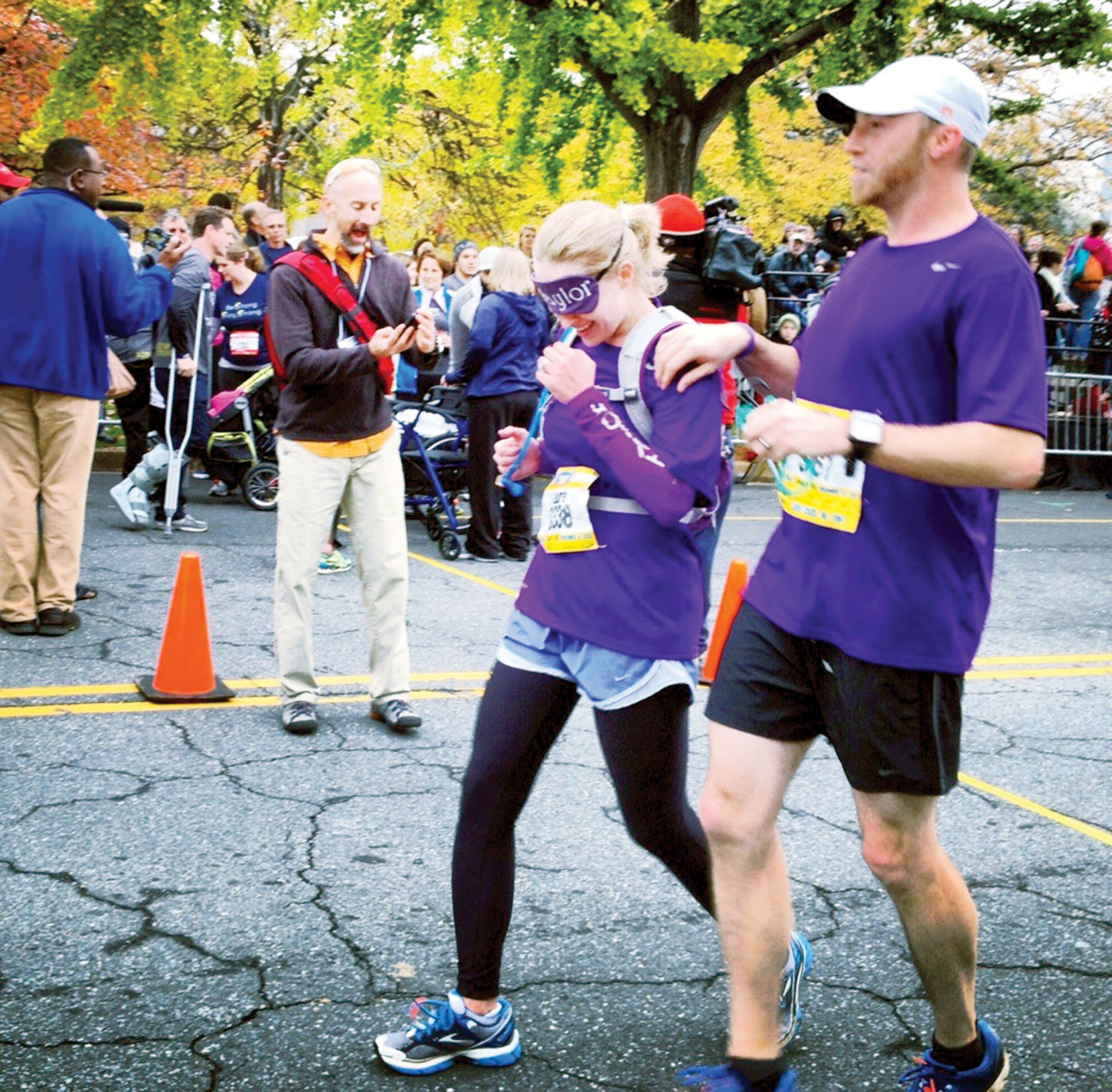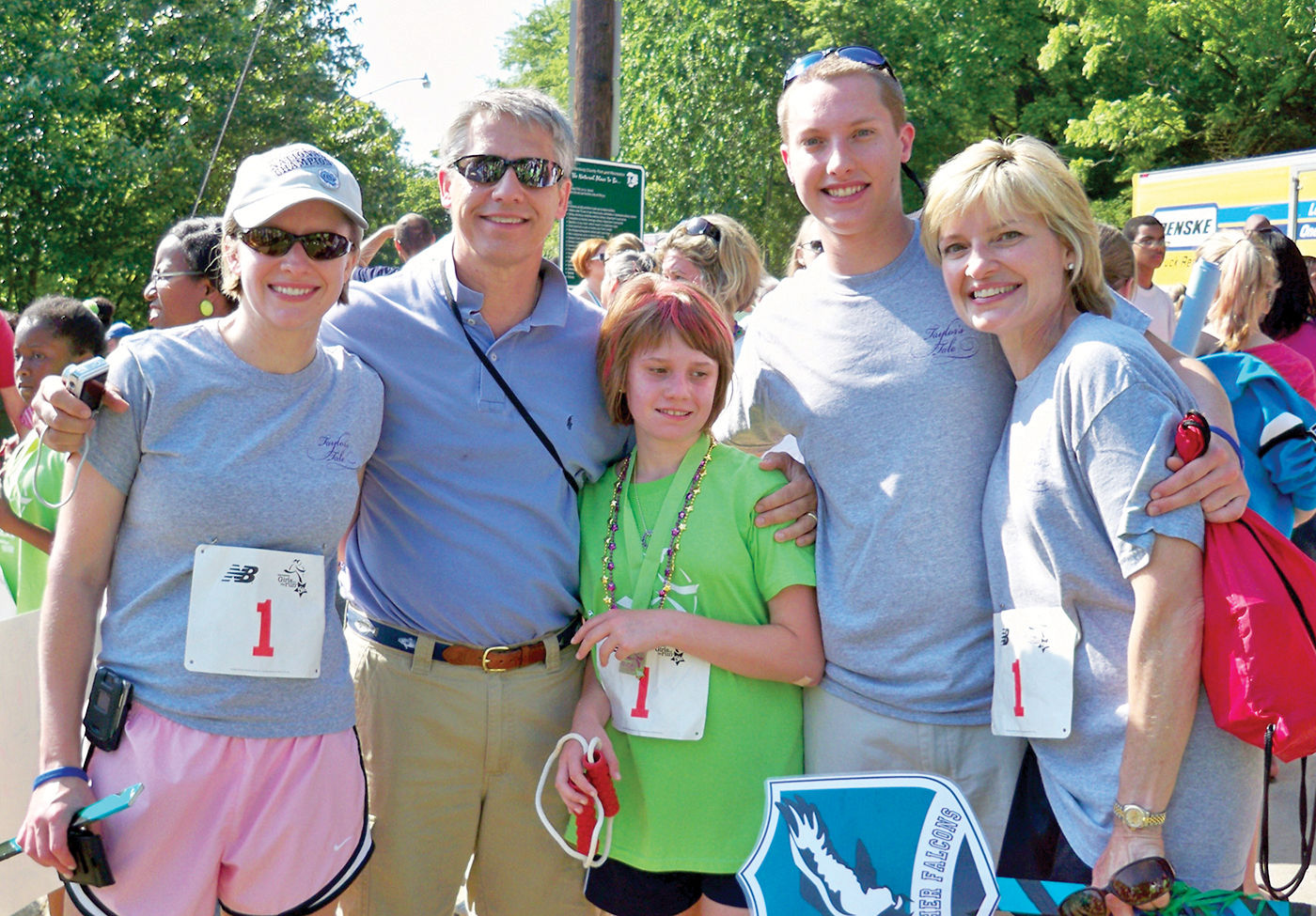With the Kauai Half Marathon set for September 6, Laura King Edwards of North Carolina was cleared to train two weeks ago following a foot injury. “I had a stress fracture in my foot that I suffered on Easter weekend,”
With the Kauai Half Marathon set for September 6, Laura King Edwards of North Carolina was cleared to train two weeks ago following a foot injury.
“I had a stress fracture in my foot that I suffered on Easter weekend,” Edwards said. “Around mile three of the Charlottesville Half Marathon in Virginia, something in my foot popped. I kept running. I finished the race in 4th place in my division, but I knew I was pretty much done for a couple of months.”
Though she hopes to be healthy and perform well come Labor Day weekend on The Garden Isle, long distance running serves a greater purpose.
Edwards’ sister, Taylor, who was also a runner and turns 17 next month, was diagnosed with Batten Disease in 2006 — a few weeks before her 8th birthday.
“Basically, we all have enzymes that cleans natural gunk out of ourselves. When we don’t have the enzymes, the gunk starts to build up. Eventually, the cells die,” Edwards said describing the illness. “When enough cells die, people with Batten Disease, they go blind, they start to have seizures, they lose their ability to walk and talk.”
Despite the disease, Taylor ran.
“When she was 10, she ran an event with Girls on the Run,” Edwards said of her sister’s race in Charlotte, North Carolina. “She was already completely blind at the time that she ran. She learned to run a 5K race without the gift of vision. She ended up running two 5K races that year.”
In 2007, Edwards co-founded Taylor’s Tale, a nonprofit named after her sister that helps fund research and raise awareness for Batten Disease and similar illnesses. Edwards said the nonprofit has raised more than $500,000.
In 2013, five years following Taylor’s race, Edwards returned to the site of that race in Charlotte and ran the half marathon blindfolded in honor of Taylor.
“I did parts of it untethered. I had a guide with me, but did good parts of it untethered. I ended up doing it under two hours,” she said. “It was one of those things that when you do it, you don’t think of what’s going to come after. Of course, everybody asked me when I crossed the finish line, ‘Well, what’s next?’”
How about going cross the country? Her mission is to compete in a race in all 50 states and share her sister’s story. Edwards started the 50 state journey in August in Oregon. Since, she has raced and shared her family’s story in seven states.
She took part in the Fargo 5K in North Dakota in May despite the foot injury. She completed the race in a walking boot.
“I’m a perfectionist. Even though I’m not doing this to win any medals, it’s never been about that. It’s always been about telling her story in the best way possible,” she said. “That was tough for me to go out to know I wasn’t going to get a good time and to know people were going to be passing me. But it was an incredible experience.”
“I realize a lot of people try to run a race in all 50 states. It’s certainly not as rare of a feat as running a half marathon blindfolded, but it’s very special for us,” she added. “It’s an opportunity to take a very inspiring story of this little girl who is never willing to give up.”
Hawaii will be the eighth state Edwards will visit.
“It’s funny. A lot of people that do this 50 state thing, Hawaii will be number 50 because it’s far away,” she said. “I’m doing it early because it’s a special place for Taylor. Most little kids talk about wanting to go to Disneyland. Taylor loves that, too, but she’s always told me she dreams of going to Hawaii.”
“We never were able to take her. Unfortunately, now she’s not able to. She’s not healthy enough to take the trip. I really chose Hawaii and wanted to do it early to honor her,” she added. “Also, the Kauai Half Marathon is very close to her 17th birthday. It’s another reason why we chose the race.”
Edwards says the disease has taken a toll on her sister, but she remains still in high spirits.
“Today, she’s in a wheelchair. She can no longer walk. She can no longer talk. She has feeding tubes so she cannot swallow food. She has had seizures. She’s had multiple hospitalizations over the past year,” Edwards said. “She still laughs, even if she can’t talk. She has this terrible disease, but she can still find something to laugh at. That really inspires me.”
Edwards said she’s received positive responses during her visits from state-to-state and has enjoyed running and talking about her sister. But she said she’d be lying if she said it was easy, especially because of the reality of the situation.
“I’m going to lose my little sister because of where she is in the disease,” Edwards continued. “The work that we’re doing is for future Taylors, as I often say. But that keeps me going every day. We have real power to make a difference for other families. That gives me energy.”




